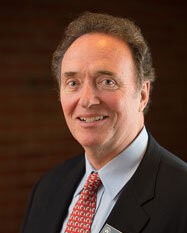
Daniel Lungren
Citation
Written by Fr. Michael Sweeney, OP, on May 2010 at the Induction in the College of Fellows
Daniel Edward Lungren, husband and father, distinguished public servant, loyal son of the Church, the Dominican School of Philosophy and Theology salutes you.
In his encyclical letter Deus Caritas Est, Pope Benedict XVI spoke of the political task as a work proper to the laity: The direct duty to work for a just ordering of society … is proper to the lay faithful. As citizens of the State, they are called to take part in public life in a personal capacity. So they cannot relinquish their participation “in the many different economic, social, legislative, administrative and cultural areas, which are intended to promote organically and institutionally the common good” [Christifideles Laici 42]. The mission of the lay faithful is therefore to configure social life correctly, respecting its legitimate autonomy and cooperating with other citizens according to their respective competences and fulfilling their own responsibility. In your long public service to the people of this state and of this nation, you have striven to “configure social life correctly” to “promote organically and institutionally the common good.”
Having graduated with honors in English at Notre Dame in 1968, you pursued studies in law, receiving your JD degree at Georgetown in 1971. Five years later, at only 32 years of age, you were elected to the United States Congress, where you served for ten years. Returning to California, you were elected Attorney General, and served in that office until 1999. The events of 9-11 prompted you once again to leave private life and you were elected to California’s 3rd congressional district, where you have served since 2005. As Attorney General of California and as a member of Congress you have been concerned for public safety, most especially of children: you have sought protection for children against sexual predators, and have sponsored legislation to combat human trafficking, both within and without the United States. You have acted to establish a commission to study modern-day slavery.
In these and other initiatives, you have worked closely with the Catholic Conference. You have worked actively outside of Congress for the dignity of the person, and for promoting what John Paul II called “a culture of life” especially through the Sacramento Life Center, whose purpose is to empower women through community education and outreach, and which serves both those who are contemplating abortion, and those who have had abortions. In an era marked by ideological thinking, and an ever deepening political polarization in this country and abroad, you have demonstrated that it is possible to hold fast to principles while promoting civility in public discourse. You are esteemed by members of both parties in the house for your thoughtful and respectful approach to the political process.
We are honored and grateful that you have accepted our invitation to collaborate with us in understanding and responding to the social challenges of the 21st Century. Accordingly, as an expression of our esteem and gratitude, and in virtue of the authority invested in me by the Board of Members of the Dominican School of Philosophy and Theology, I am privileged to bestow upon you, Daniel Edward Lungren, the degree of Doctor of Humane Letters honoris causa, and to name you as a Fellow of the Dominican School of Philosophy and Theology.
